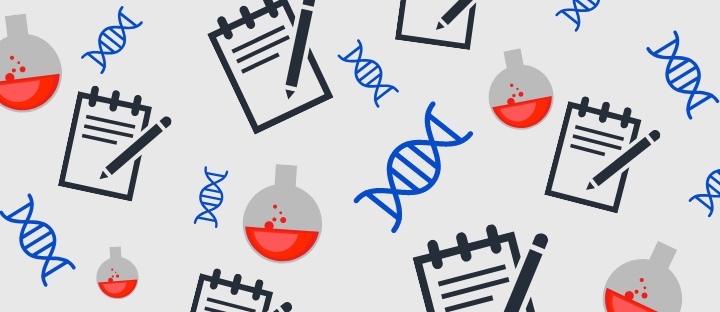#ScienceSaturday posts share exciting scientific developments and educational resources with the KAND community. Each week, Dr. Dylan Verden of KIF1A.ORG summarizes newly published KIF1A-related research and highlights progress in rare disease research and therapeutic development.
KIF1A-Related Research
SPARKing New Insight Into Autism Across the Lifespan
When I was growing up, autism was still unfamiliar to many; people may had heard the term but families often had to educate themselves, their schools, and their communities about autism to advocate for their child’s needs. In many ways a growing awareness of autism paved the way conversations about neurodiversity, and examples of patient-led advocacy.
For all that our cultural awareness of autism has grown, much of the underlying biology is still unknown. To make matters more challenging, autism is famously variable: As autism advocate Dr. Stephen Shore said, “if you’ve met one person with autism, you’ve met one person with autism.”
Much like cerebral palsy, cerebellar ataxia, and epilepsy, autism is a symptom-led diagnosis. Communication issues, repetitive behaviors, and differences in sensory experiences are broad symptoms, and there are hundreds of genes that have been linked to autism, including KIF1A.
Painting autism with too broad a brush runs the risk of leaving peoples’ needs unmet. Small case studies have provided many insights into autism-associated genes, but large-scale studies allow a more comprehensive picture of autism.
This week, a review co-authored by KAND clinical champion Dr. Wendy Chung discusses advances from the Simons Foundation Powering Autism Research for Knowledge (SPARK) Project, which enrolled 275,000 participants with and without autism, between 2016 and 2022. This has created a platform to learn about autism-associated genes, identify risk factors for subgroups, and better inform new interventions. Studies like SPARK highlight the importance of human data in accelerating patient-facing research.
Rare Roundup
The Jackson Laboratory offers “Exploring Rare Disease Through Translational Research” MiniCourse
Human health is incredibly complex; developing safe, effective treatments requires knowledge of molecular mechanisms, cell biology, and drug administration. Animal models have given researchers profound insights into disease, assisting in the creation and testing of new therapies that have changed lives across the world.
Animal models are also limited; no animal will perfectly reflect human biology. Choosing the right animal models, and using them effectively, is crucial, especially for rare disorders with limited access to research resources. Used the right way they can accelerate crucial rare disease research.
Want to learn more about translational research? The Jackson Laboratory is offering a short MiniCourse on modeling rare diseases for preclinical drug development. The Jackson Laboratory has been integral in the development of KAND cell and mouse models, and we’re grateful for their continued dedication to advancing rare disease research.

